As a home inspector, I tend to take shut-off valves for granted and assume everyone knows what they are, how they work, and what can go wrong with them. I recently had a client share a story with me regarding some problems he ran in to with the shut-off valves at his house - we'll call him Sir Walter Raleigh. Walter thought that some of the problems he ran in to while replacing his water heater were things that most homeowners don't think about or know about, and would make for good blog fodder. I agreed.
Gate Valves
Walter's woes began when he tried to shut off the water to his water heater. All water heaters are supposed to have a shut-off valve on the cold water supply. If the water heater is going to be replaced, this is where the water gets shut off.
Some homes also have a valve on the hot water side of the water heater - these aren't required, but they're also not a problem. They just make it a little easier to service the water heater. I've heard some home inspectors call shut-off valves on the hot side of a water heater a safety hazard, but they're not. They're fine.
As you may have guessed, Walter couldn't shut the water off completely. He had an old gate valve at the water heater, and the gate valve was fouled - it shut off most of the water, but most isn't good enough. A gate valve has a round handle on it, and shuts off the flow of water by essentially closing a gate. The three photos below show a gate valve in the open position, halfway open position, and fully closed position.
As you can see, the handle never goes up and down as the gate opens and lowers; for this reason, it's impossible to know if a gate valve is in the open or closed position just by looking at it. The exploded view below shows what the guts of a gate valve look like.
When the gate valve at the water heater wouldn't completely shut off the flow of water, Walter decided he better replace the valve. He tried to shut the water off at the main shut-off valve for his house, located downstream from the water meter. That valve was fouled too. Next, he went to the other main valve for his house - the one upstream from the water meter. Can you guess where this is going? That valve was also fouled. Three fouled gate valves, no way to completely shut off the water to his house. It's a good thing this was only a 'project' and not an emergency.
Do you know where the main shut-off valve to the water supply in your home is? If not, take a quick peek at your home inspection report - home inspectors are supposed to report on the location of the main water and main fuel shut-off valves. For most buildings in Minnesota, the main shut-off valve is located in the basement near the front of the building. If there is no basement, the valve will probably be located in the furnace room.
Curb Stop
To continue with his project, Walter had to replace his main shut-off valves. To do this, he needed to call the city water department and have them turn off the water to his house at the street. The first shut-off valve to a home's water supply is located below the ground near the street - this is call the curb stop, or the curb cock. Sometimes the valve is buried in the dirt, and sometimes they've completely covered in concrete. The photo below shows an example of an access cover located in the front yard.
Here's a closer view.
In Walter's case, it took the people from the municipal water supply about 40 minutes to even find the one in his front yard, because it was buried. At least it wasn't buried below a sidewalk. Here's what the access cover may look like if it's located at a driveway or sidewalk. It's tough to mistake this for anything else.
When the city turns the water on or off from the curb, they use a special tool like the one pictured below.
Ball valves
Once the city had turned off the water supply to his house, Walter started replacing his valves. He hired a plumber to replace the first valve before the meter, and then did the rest of the valves himself. Instead of using gate valves, he used ball valves. Ball valves are much easier to operate - they have a lever handle that only needs to be moved 90 degrees to be turned off completely. By comparison, the gate valve that I showed above took me 15 turns of the wrist to completely shut off.
When the handle of a ball valve is parallel to the valve or pipe, it's open. When it's perpendicular, it's closed. This makes it easy know if a ball valve is open or closed, just by looking at it. The ball valve below is in the open position.
The photos below show a ball valve in the open position, halfway open position, and fully closed position.
Ball valve are also much less likely to leak; I can't recall ever finding a leaking ball valve, but I find other types of valves leaking all the time.
Stop Valves
Walter didn't have any stop valves to deal with, but as long as I'm talking about different types of valves, I should mention stop valves as well. Stop valves are commonly found at plumbing fixtures - for instance, at the water supply line to your toilet. A stop valve looks very similar to a gate valve, but it's a little bit more compact. A stop valve works by moving a stopper up and down. The photos below show a stop valve in the open position, halfway open position, and fully closed position.
Check out the stem in these photos - you'll notice that when the valve is fully closed, the stem isn't visible at all. Most stop valves are much smaller than the one pictured above, but I decided to use a larger one for my example because it gives the best view. The photo below shows an exploded view of the guts of a stop valve.
Like gate valves, stop valves take more time to operate and they're more prone to leaking. If you have a leaking stop valve, you can often stop the leak by using a wrench to tighten the nut right below the handle. Lefty loosy, righty tighty.
Summary
If you want to be proactive about preventing a plumbing headache, check out the main shut-off valves at your home. Are they accessible? When the valve is fully closed, does this completely shut off the water to your house? Is the curb stop in your front yard visible? It's nice to know about this stuff before you have a problem.
Gate valves, stop valves, and ball valves are the most common types of valves to find in your home. If you have any projects that require replacing valves, I recommend using ball valves, also known as quarter-turn valves. They're easier to use and less prone to leaking.
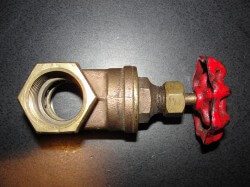
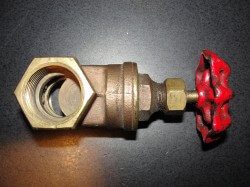
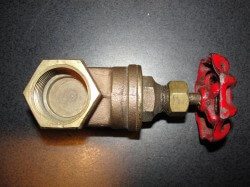

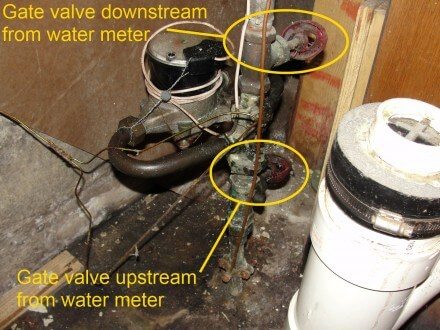
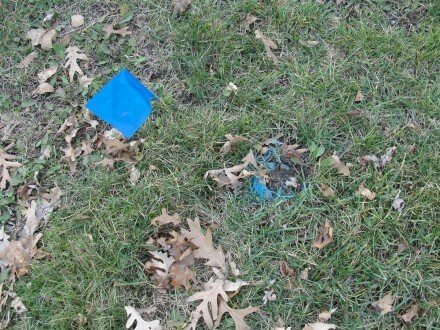
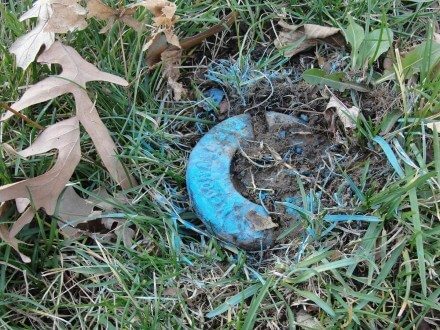
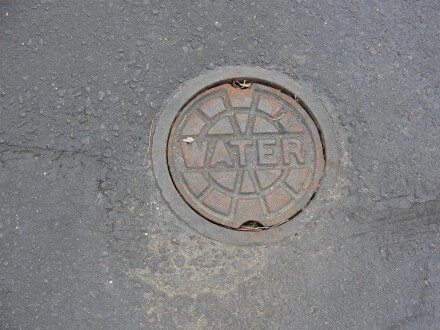
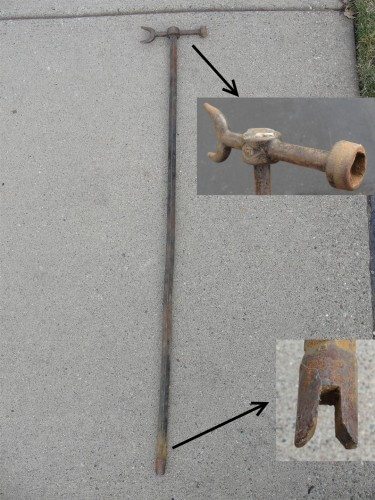
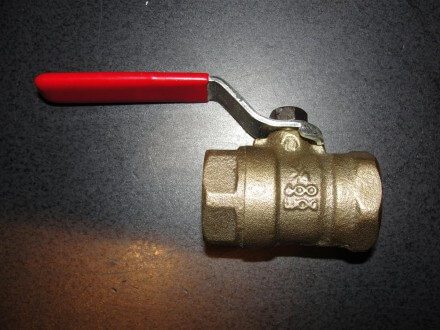
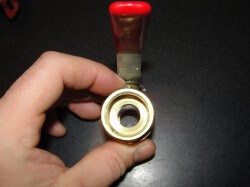
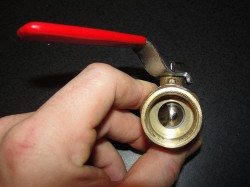
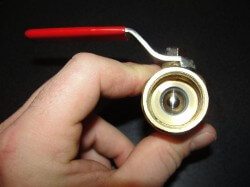
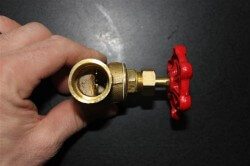
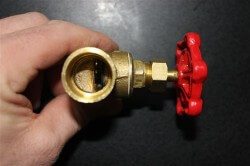
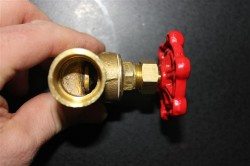


Comments(28)